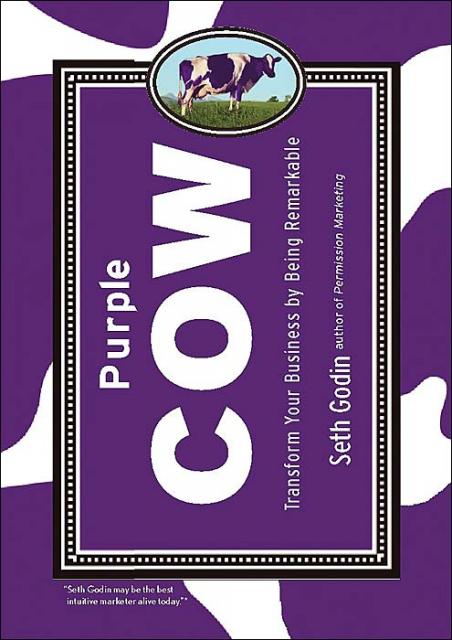
The post-consumption consumer is out of things to buy. We have what we need, we want very little, and we’re too busy to spend a lot of time researching something you’ve worked hard to create for us- says Seth Godin in his outstanding marketing book Purple Cow. His recipe for alluring and selling to these time scarce customers is offering them something Remarkable like Purple Cow that is not boring like brown one. Something remarkable is worth talking about. Worth noticing. Exceptional. New. Interesting. It deserves attention. Boring stuff is invisible. It’s a brown cow.
Seth also warns us that, if you create something mediocre, boring and average than that would not be a winner, that would not be sustainable. Even something very good would be a failure in this market but Remarkable. Seth not only talked about the importance of being remarkable but also about how to be remarkable. We picked up some of his well thought strategy to become remarkable from his book Purple Cow.
The big question is this: Do you want to grow? If you do, you need to embrace the Cow. You can maintain your brand the old way, but the only route to healthy growth is a remarkable product.
Is your product more boring than salt? Unlikely. So come up with a list of ten ways to
change the product (not the hype) to make it appeal to a sliver of your audience.
Think small. One vestige of the TV-industrial complex is a need to think mass. If it doesn’t appeal to everyone, the thinking goes, it’s not worth it. No longer. Think of the smallest conceivable market, and describe a product that overwhelms it with its remarkability. Go from there.
Outsource. If the factory is giving you a hard time about jazzing up the product, go elsewhere. There are plenty of job shops that would be delighted to take on your product. After it works, the factory will probably be happy to take the product back.
Build and use a permission asset. Once you have the ability to talk directly to your most loyal customers, it gets much easier to develop and sell amazing things. Without the filters of advertising, wholesalers, and retailers, you can create products that are far more remarkable.
Copy. Not from your industry, but from any other industry. Find an industry more dull than yours, discover who’s remarkable (it won’t take long), and do what they did.
Go one more. Or two more. Identify a competitor who’s generally regarded as at the edges, and outdo them. Whatever they’re known for, do that thing even more. Even better, and even safer, do the opposite of what they’re doing.
Find things that are “just not done” in your industry, and do them. JetBlue almost instituted a dress code for passengers. They’re still playing with the idea of giving a free airline ticket to the best dressed person on the plane. A plastic surgeon could offer gift certificates. A book publisher could put a book on sale. Stew Leonard’s took the strawberries out of the little green plastic cages and let the customers pick their own – and sales doubled.
Ask, “Why not?” Almost everything you don’t do has no good reason for it. Almost everything you don’t do is the result of fear or inertia or a historical lack of someone asking, “Why not?”
Explore the limits. What if you’re the cheapest, the fastest, the slowest, the hottest, the coldest, the easiest, the most efficient, the loudest, the most hated, the copycat, the outsider, the hardest, the oldest, the newest, the . . . most! If there’s a limit, you should (must) test it.
Explore
